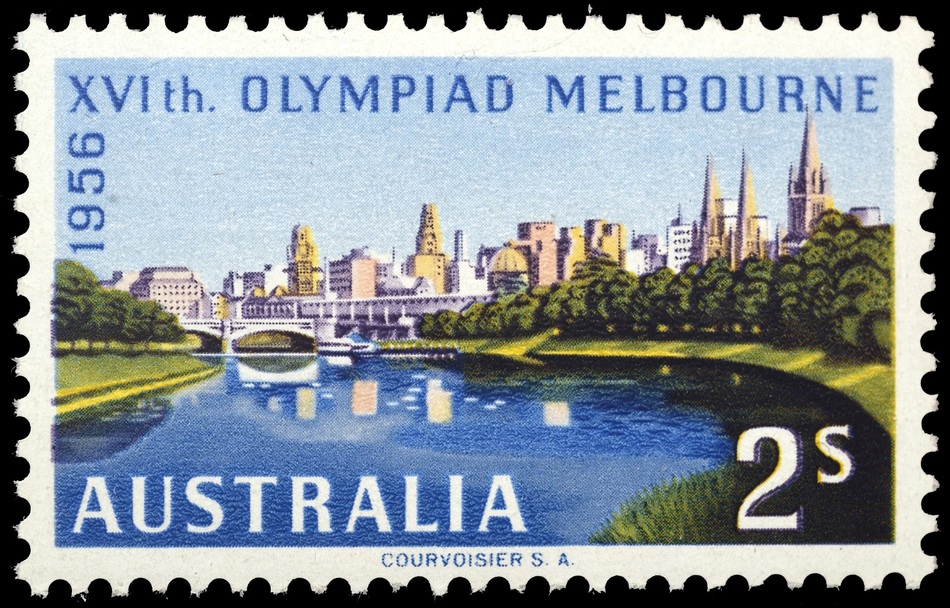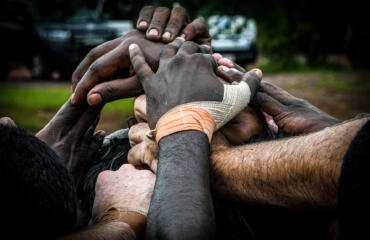The former Olympic city already had the facilities needed to host the world championships of most events featured at the Olympics, according to two-time gold medal-winning rower Nick Green, who heads the Victorian Olympic Committee. But it would need to wait behind Brisbane before pitching to repeat its 1956 Games success.
“The Melbourne park precinct is the envy of the world,” Green told an audience of sports lovers at Melbourne Town Hall on Thursday evening. “To have all those venues within walking distance of world class hotels, restaurants, galleries and museums is amazing and means we have a city that could easily host a games without a massive effort.”

But he also made it clear that any Melbourne bid would have to come after an attempt by Brisbane, which is considering pitching for the 2028 Games. A major hurdle for Melbourne would be that rules imposed by the International Olympic Committee after the Sydney Olympics mean that the Games must be held during July and August — winter time in Melbourne and at the height of the AFL and NRL seasons.
Other panellists at the event, part of Melbourne City Council’s free talks series, included the chief executive of Victorian Major Events Company, Brendan McClements, and Olympian-of-the-moment Jared Tallent, who on Friday was finally presented with the London Olympics gold medal for the 50km walk, after Russia’s Sergey Kirdyapkin was stripped of the prize for doping. Fellow Olympic medallist and chair of VicSport Margot Foster and Netball Australia chief Kate Palmer joined them.
Mr McClements said that while Melbourne already had the capacity to host the Games, the high cost of bidding and strong international competition meant it would be unlikely for the city to launch a bid before the centenary of the 1956 event.
“If a bid by Brisbane for 2028 fails, we could challenge for 2036 or 2040, but in my opinion we would probably lose,” Mr McClements said. “The cost of bidding is currently estimated at $50 million, so if we are going to bid we don’t want to lose.
“When we bid [for] 1996, it cost us $21 million and the FIFA World Cup bid cost us $43 million [with] nothing to show for it.”
But the actual bid is only the first of many expenses. The Sydney Olympics cost an estimated $3 billion-plus, but costs continue with the purpose-built Homebush precinct requiring ongoing maintenance. It took Montreal 30 years to pay back the $US2.7 billion debt the city accrued from the 1976 Games and while the $US6 billion spent on Barcelona in 1992 revolutionised the city, poorer parts of Spain suffered as a consequence.
“If a bid by Brisbane for 2028 fails, we could challenge for 2036 or 2040, but in my opinion we would probably lose. The cost of bidding is currently estimated at $50 million, so if we are going to bid we don’t want to lose.” — Brendan McClements, Victorian Major Events Company
Mr McClements said the challenge for Melbourne was in creating a plan for investing money that goes beyond the Games themselves.
“If you are going to try and sell a billion dollar event to the taxpayers, there is no way it can just be about sport,” Mr McClements said. “You need to have a crystal clear vision about how to use the two or three billion dollars to make Melbourne the best place it can be. It’s about finding what the Olympics can do for us.”
But Professor Hans Westerbeek, Victoria University’s Dean of Sports and Exercise Science, pointed to the sometimes negative effects of hosting the world’s greatest sports event. This year’s Games were a prime example, with host city Rio De Janiero facing major problems.
“The first question is whether a city is ready to host the Games, because if they aren’t then it can leave a very bad legacy,” Professor Westerbeek said. “We saw it with Athens and now Rio are having major problems.”
Economists have claimed that Brazil is falling into its worst financial crisis in 100 years under the weight of its expensive football World Cup and Olympics commitments, with the national unemployment rate climbing above 11 per cent. Meanwhile, political turmoil and fears over the Zika Virus, have cast Brazil as a country in crisis.
Problems do not always disappear when the crowds go home, either. Eight years after the acclaimed 2008 Beijing Olympics, many of the sites purpose built by China for events lie in ruin.
“They have recently transformed the Water Cube into a curling venue for the 2022 Winter Olympics, but the Bird’s Nest and almost every other stadium is in complete disrepair,” Professor Westerbeek added.
Tallent said that utilising regional Victoria would help overcome many of the costing challenges and provide inspiration for younger generations.
“Growing up in Ballarat, I was always training around the lake where the rowing was held in 1956,” he said. “I was always inspired by the Olympic rings they had at the finish line.
“The world will be a very different place in 30 or 40 years and the Olympics will probably look very different too. Even in Tokyo in 2020, skateboarding is coming to the Olympics and they are building a half pipe in the middle of downtown Tokyo, using what they have and bringing the Olympics to the people rather than creating stadiums.” — Nick Green, dual Olympic gold medal winner
“So, I think if we could incorporate at least some of the bigger country towns like Ballarat, Bendigo and Geelong in a bid, and get those communities involved, then we would have a chance to put on a great games.”
However, an outcome that left dilapidated arenas was not something that Green foresaw as a problem for Melbourne in the future, especially as the Olympics moved away from stadium-based sports. Also, a pitch in several decades’ time would likely look very different than the sorts of proposals being put together now.
“The world will be a very different place in 30 or 40 years and the Olympics will probably look very different too,” he said. “Even in Tokyo in 2020, skateboarding is coming to the Olympics and they are building a half pipe in the middle of downtown Tokyo, using what they have and bringing the Olympics to the people rather than creating stadiums.”
Similarly, the Melbourne Commonwealth Games in 2006 were considered a resounding success, with stadiums refurbished and events spread around the state to make use of the different environments available in Victoria. An official report on the Games found that the event created around 13,500 full-time jobs and helped boost the local economy. While the Olympics presented a significantly greater challenge, Mr McClements said the success of the 2006 event demonstrated Melbourne’s capacity for hosting a cost effective and successful Olympics.
“The 2006 games showed we could still do it,” Mr McClements said. “I know I’d love to have an Olympics here and we are ready to go. I just don’t think we will be bidding for a long time.”



